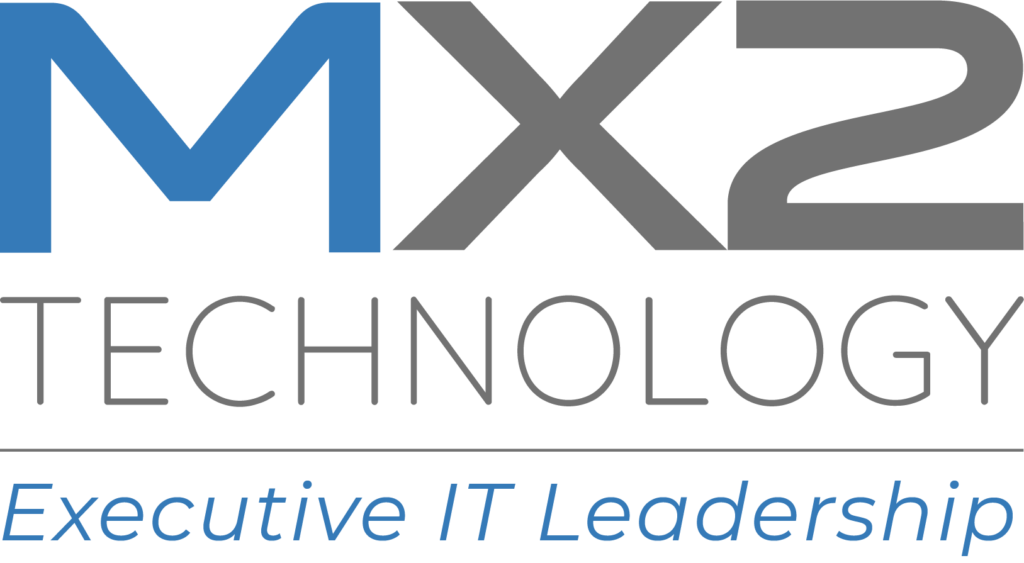The Bottom Line Up Front: CMMC Compliance for DoW Contractors
Starting November 10, 2025, the Department of War (DoW) is implementing mandatory cybersecurity requirements that will fundamentally change how defense contractors protect sensitive information. If your company works with the DoW or aspires to win defense contracts, these new Cybersecurity Maturity Model Certification (CMMC) requirements will directly impact your ability to compete and maintain contracts.
What Is CMMC (Cybersecurity Maturity Model Certification), and Why Does It Matter?
The Cybersecurity Maturity Model Certification (CMMC) is the DoW’s new framework for ensuring that defense contractors and subcontractors can adequately protect Federal Contract Information (FCI) and Controlled Unclassified Information (CUI) from cyber threats. With malicious cyber activity costing the U.S. economy between $57 billion and $109 billion annually, the DoW is taking decisive action to secure its defense industrial base (DIB) supply chain.
Unlike previous DFARS 252.204-7012 requirements that relied on self-attestation, CMMC 2.0 introduces third-party verification through certified CMMC Third-Party Assessor Organizations (C3PAOs). This means an independent assessor will verify that your NIST SP 800-171 security controls are actually in place and functioning properly.
Key CMMC Requirements for Defense Contractors and Subcontractors
Immediate CMMC Compliance Actions Required:
- Achieve the Required CMMC Level – Defense contractors must obtain the appropriate CMMC certification level BEFORE contract award
- Maintain CMMC Compliance – Keep your CMMC status current throughout the entire DoW contract lifecycle
- Annual CMMC Affirmations – Complete yearly compliance affirmations in the Supplier Performance Risk System (SPRS)
- Track Your Systems – Provide CMMC unique identifiers (UIDs) for all information systems handling FCI and CUI
- CMMC Flow Down Requirements – Ensure your subcontractors meet appropriate CMMC levels for defense contracts
What Is the 48 CFR Rule?
The 48 CFR rule, formally known as the Defense Federal Acquisition Regulation Supplement (DFARS Case 2019-D041), is the contractual framework that implements CMMC requirements into defense contracts. Published in the Federal Register on September 10, 2025, this rule amends the DFARS to incorporate specific cybersecurity requirements that all defense contractors must meet. It works in conjunction with 32 CFR Part 170 (the technical CMMC requirements) to create a comprehensive cybersecurity framework for the defense industrial base.
Key Elements of the 48 CFR Rule:
- Establishes Contract Clauses – Creates DFARS 252.204-7021 and 252.204-7025, which are the mandatory clauses for CMMC compliance in DoW contracts
- Defines CMMC Status Requirements – Contractors must have current CMMC certification before contract award, not after
- Mandates SPRS Registration – All CMMC assessments and affirmations must be recorded in the Supplier Performance Risk System
- Sets Flowdown Requirements – Prime contractors must ensure subcontractors meet appropriate CMMC levels before sharing FCI or CUI
- Requires Annual Affirmations – Contractors must affirm continuous compliance annually through an authorized official
- Establishes CMMC UIDs – Creates unique identifier system for tracking compliance across multiple contractor information systems
- Excludes COTS Items – Contracts exclusively for commercial off-the-shelf items are exempt from CMMC requirements
- Applies to All Contract Types – Includes FAR Part 12 commercial contracts and applies at all dollar thresholds above micro-purchase
What Is the 32 CFR Rule?
The 32 CFR Part 170 rule, formally titled “Cybersecurity Maturity Model Certification Program,” is the foundational regulation that establishes the CMMC program itself. Published in the Federal Register on October 15, 2024, and effective December 16, 2024, this rule creates the technical framework for cybersecurity assessments across the defense industrial base. It defines the security requirements, assessment procedures, and certification levels that contractors must achieve to handle sensitive government information.
Key Elements of the 32 CFR Rule:
- Establishes CMMC Levels – Defines three certification levels (Level 1 Self-Assessment, Level 2 C3PAO Assessment, and Level 3 DIBCAC Assessment) based on information sensitivity
- Sets Security Requirements – Incorporates NIST SP 800-171 and NIST SP 800-172 controls as the baseline security standards
- Defines Assessment Procedures – Establishes who can conduct assessments (self, C3PAO, or DIBCAC) and validity periods (1 or 3 years)
- Creates POA&M Process – Allows conditional certification with Plans of Action & Milestones for up to 180 days to close minor gaps
- Mandates Annual Affirmations – Requires affirming officials to annually certify continuous compliance with security requirements
- Establishes Scoping Guidance – Defines which assets and systems must be included in CMMC assessments
- Sets Phased Implementation – Creates a 3-year rollout period before full implementation across all DoD contracts
- Defines Information Types – Clarifies requirements for Federal Contract Information (FCI) versus Controlled Unclassified Information (CUI)
CMMC Requirements Impact on Your Defense Contracting Business
CMMC for Prime Defense Contractors:
- Cannot win DoW contracts without the required CMMC certification level
- Must verify subcontractors’ CMMC compliance before flowing down defense contract work
- Responsible for maintaining CMMC compliance throughout the DoW contract period
- Option periods and extensions require current CMMC certification status
CMMC for Defense Subcontractors:
- Some prime contractors have started to require proof of your CMMC certification
- Must maintain your own CMMC compliance independently
- Need to provide CMMC UIDs to prime contractors for DoW contracts
- CMMC requirements flow down through all tiers of the defense supply chain
Common CMMC Compliance Pitfalls to Avoid:
- Waiting Too Long for CMMC Assessment – The C3PAO assessment process can take months; start your CMMC journey now
- Underestimating CMMC Scope – CMMC applies to ALL systems handling FCI and CUI
- Ignoring Subcontractor CMMC Requirements – Their non-compliance becomes your problem
- Letting CMMC Certifications Lapse – Expired CMMC certifications mean lost DoW contracts
- Incomplete CMMC Documentation – Poor record-keeping will fail CMMC assessments
CMMC Cost Impact for Defense Contractors and Small Businesses
The DoW estimates that over 337,000 defense industrial base entities will be impacted by CMMC requirements, with approximately 68% being small businesses. While CMMC compliance costs vary by company size and current NIST SP 800-171 security posture, the cost of CMMC non-compliance is clear: complete exclusion from the defense industrial base.
Consider these CMMC cost factors:
- CMMC assessment preparation costs and readiness activities
- Technology upgrades and cybersecurity tools for NIST SP 800-171 compliance
- CMMC training and personnel costs
- Ongoing CMMC compliance maintenance and annual affirmations
- Potential DoW contract loss if unprepared for CMMC
Steps to Achieve CMMC Compliance Today
1. CMMC Gap Assessment
- Identify all systems that handle Federal Contract Information and Controlled Unclassified Information
- Determine which CMMC certification level applies to your DoW contracts
- Evaluate gaps between current NIST SP 800-171 practices and CMMC requirements
2. Create Your CMMC Compliance Roadmap
- Develop a timeline for achieving CMMC certification before November 2025
- Budget for necessary NIST SP 800-171 improvements and security controls
- Identify qualified CMMC Third-Party Assessor Organizations (C3PAOs)
- Plan for ongoing CMMC compliance maintenance
3. Engage Your Defense Supply Chain
- Communicate CMMC requirements to defense subcontractors
- Verify subcontractors’ CMMC compliance plans
- Update contracts to include CMMC flowdown requirements
4. Document CMMC Compliance
- Establish robust System Security Plan (SSP) documentation practices
- Implement continuous monitoring for NIST SP 800-171 controls
- Prepare for annual CMMC affirmations in SPRS
Why Professional CMMC Consulting Is Critical for Defense Contractors
The CMMC requirements span the DFARS 252.204-7021 clause and 32 CFR Part 170 regulations, totaling hundreds of pages of complex technical and contractual requirements. These regulations require coordination across multiple systems, precise implementation of NIST SP 800-171 technical controls, and understanding of DoW contracting requirements.
A single CMMC compliance oversight can disqualify your company from billions of dollars in defense contracts. Many defense contractors and subcontractors are finding that navigating CMMC compliance requires specialized expertise in:
- Interpreting CMMC regulatory requirements and DFARS clauses
- Implementing NIST SP 800-171 technical security controls
- Preparing for C3PAO third-party assessments
- Managing defense supply chain CMMC compliance
- Maintaining ongoing CMMC certification status
Partner with MX2 Technology: Your CMMC Compliance Solution
Don’t let CMMC requirements catch your defense contracting business unprepared. The window for achieving CMMC compliance is closing rapidly, and the consequences of non-compliance are severe. MX2 Technology, a certified CMMC Level 2 MSP, specializes in guiding defense contractors through the entire CMMC journey, from initial gap assessment to successful CMMC certification and ongoing compliance.
MX2 Technology CMMC Services Include:
- CMMC Gap Analysis – We assess your current NIST SP 800-171 security posture against CMMC requirements
- CMMC Implementation Support – Our CMMC experts guide you through implementing required security controls
- C3PAO Assessment Preparation – We ensure you’re ready for CMMC third-party verification
- Ongoing CMMC Compliance – We help maintain your CMMC certification and handle annual affirmations
- Defense Supply Chain Management – We assist with subcontractor CMMC compliance verification
Why Choose MX2 Technology for CMMC Compliance?
Our team brings deep expertise in defense contracting, CMMC compliance, cybersecurity, and DFARS regulatory requirements. We understand the unique challenges facing defense contractors and have successfully guided numerous companies through complex CMMC compliance initiatives. With MX2 Technology, you get:
- MX2 Technology is a certified CMMC Level 2 Managed Service Provider
- Proven CMMC methodologies tailored to defense contractors
- Expert guidance through every phase of CMMC compliance and certification
- Cost-effective CMMC solutions scaled to your business size
- Ongoing support to maintain CMMC certification status
- Peace of mind knowing you’re CMMC audit-ready
Don’t Wait – Your DoW Contracts Depend on CMMC Compliance
Contact MX2 Technology today for a confidential CMMC consultation about your readiness for the Cybersecurity Maturity Model Certification. Our CMMC experts are standing by to help you navigate these critical DFARS requirements and ensure your company remains competitive in the defense marketplace.
Ready to secure your company’s future in defense contracting with CMMC compliance?
Contact MX2 Technology now for CMMC consulting:
- Schedule your free CMMC readiness assessment
- Get expert CMMC guidance tailored to your specific DoW contracts
- Ensure CMMC compliance before the November 2025 deadline
Don’t let CMMC cybersecurity requirements end your defense contracting business. Partner with MX2 Technology, a certified CMMC Level 2 MSP, and turn CMMC compliance into your competitive advantage in the defense industrial base.
Contact MX2 Technology Today for CMMC Compliance Support– Because when it comes to CMMC certification for DoW contractors, you can’t afford to get it wrong.

